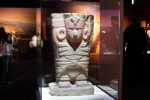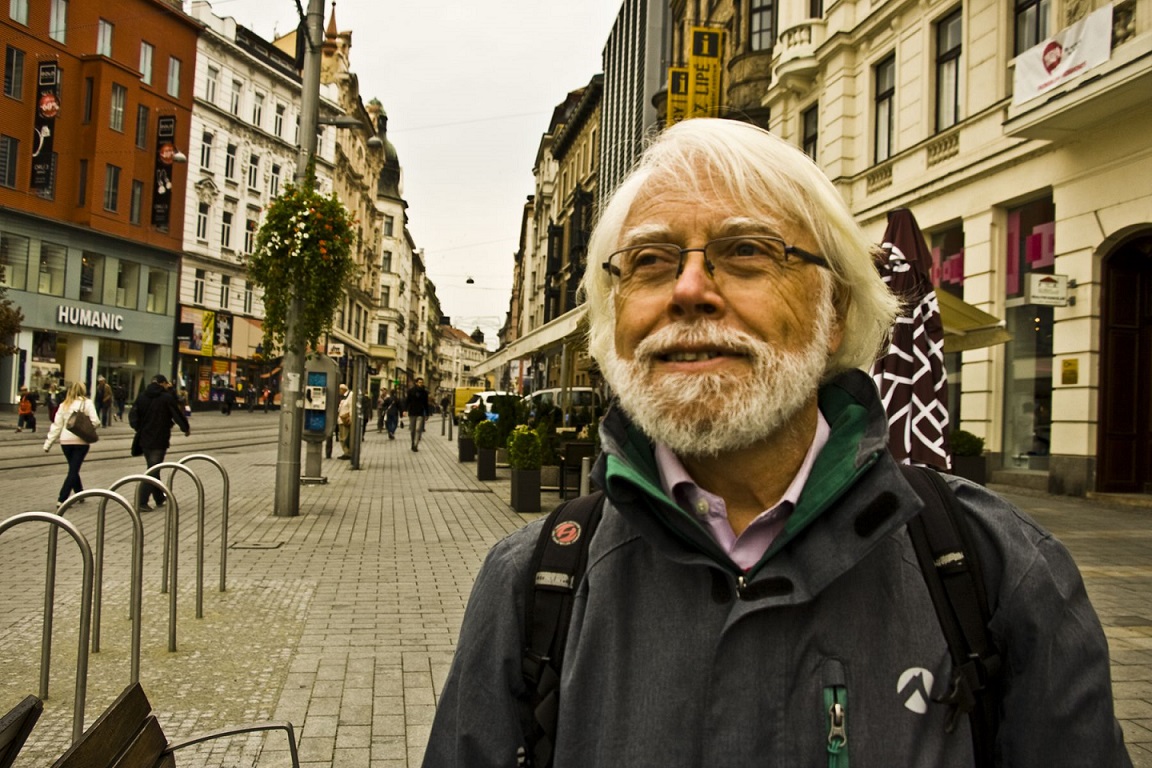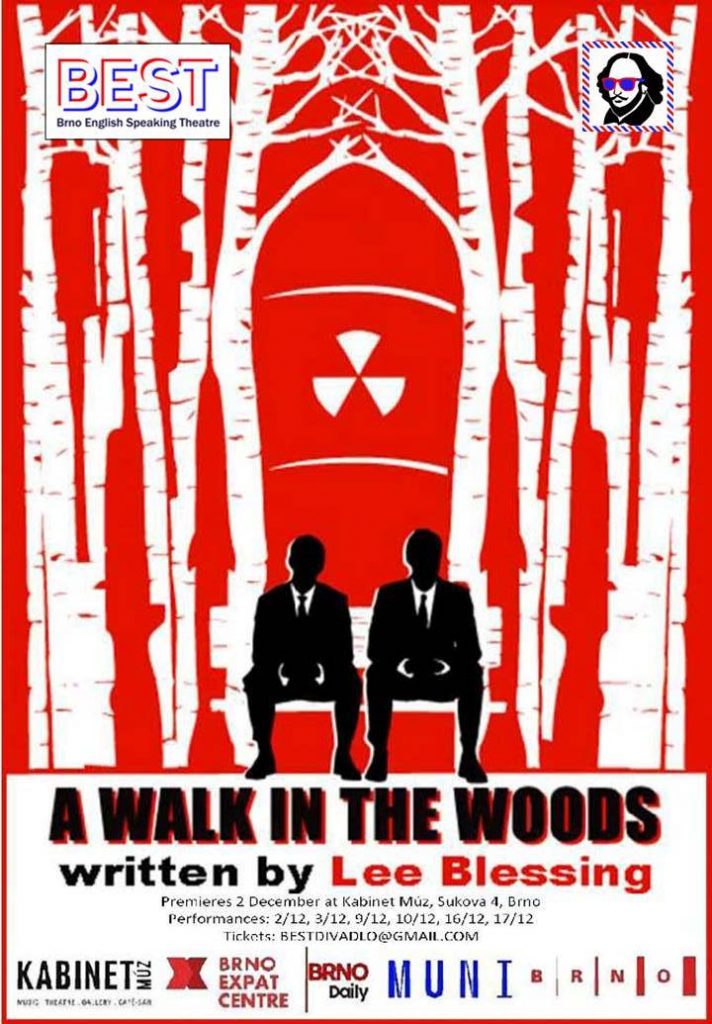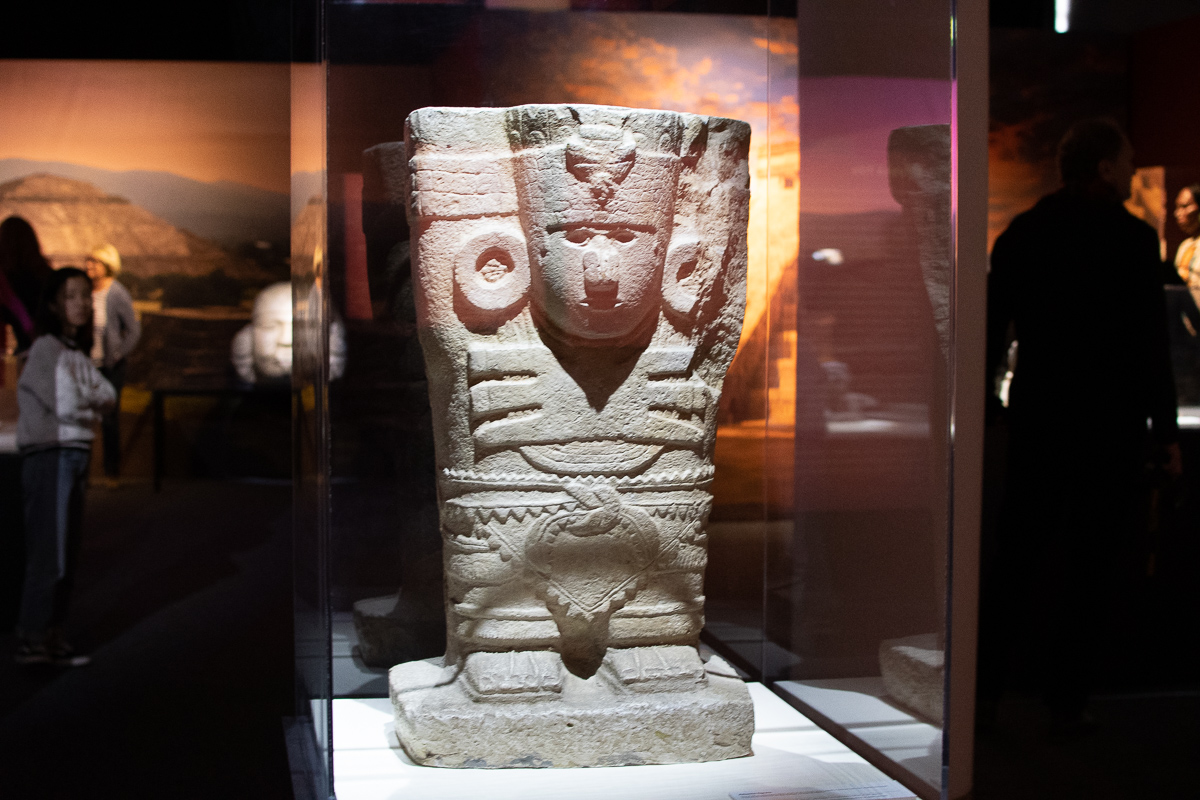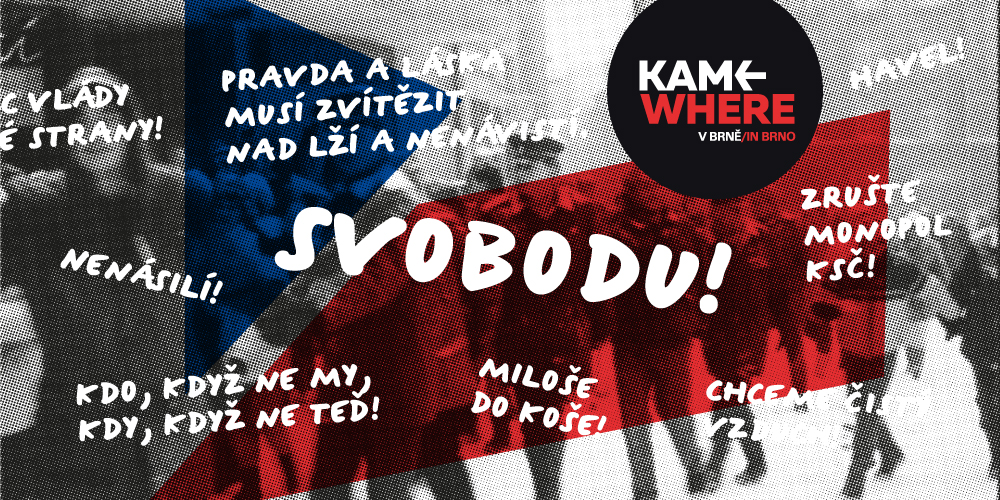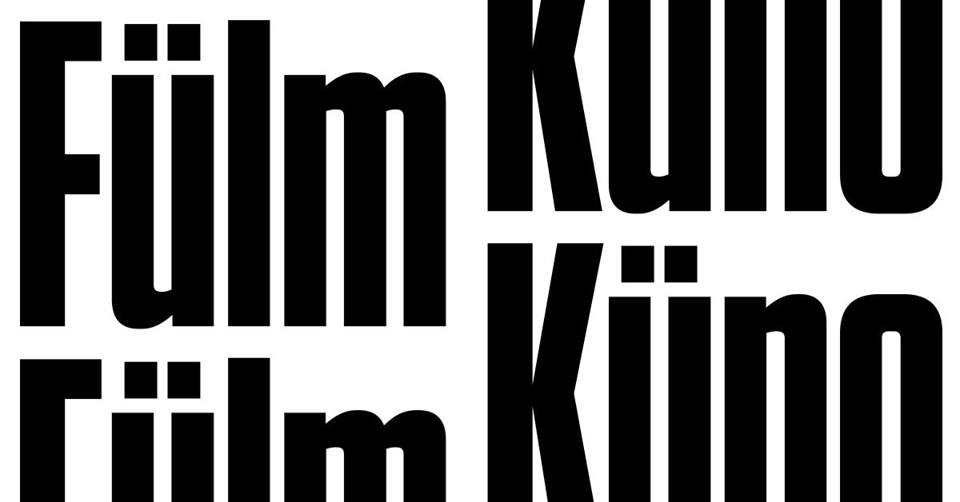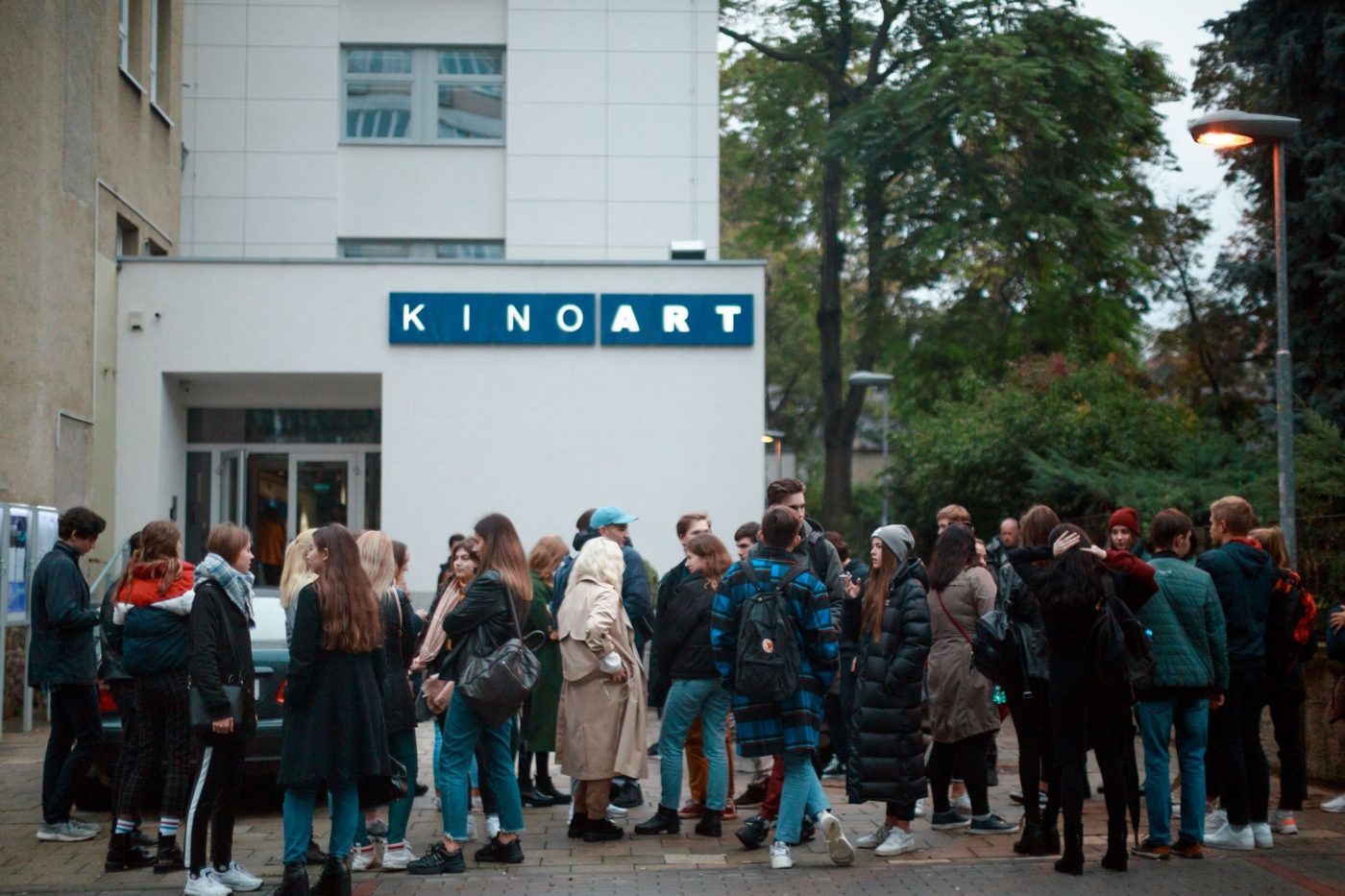For 50 years, Don Sparling a Canadian emigre has been at the heart of the Brno ex-pat experience. As a university professor, local tour guide, member of the Brno Expat Centre staff and mentor to a host of theatre students and patrons, no one is better situated to reflect on Brno’s evolving energy and growth. Here he sits for an interview in his role as co-director for BEST divadlo’s upcoming show (“A Walk in the Woods”, opening 2/12 at Kabinet Múz). Sparling was instrumental in early discussions that gave birth to the theatre company. Photo credit: Vít Pohanka.
Could you tell us something of how you first got involved in theatre?
First? Grade 1, me playing Prince Charming in a school production of Cinderella. I was a knockout in deep blue velvet jacket and breeches, feathered cap, white stockings and buckled shoes. This was followed by a few Christmas shows at our church, a lot of theatre at university (Toronto and Oxford), and finally the Gypsywood Players, the English Department theatre at Masaryk’s Faculty of Arts.
Who were some artists or theatre companies whose work you admired or inspired you?
Canada in the 1950s, when I was growing up, was a theatre desert – no professional theatre in Ottawa, my hometown, the one professional theatre in Toronto going bankrupt in the ‘60s. The great exception was the Shakespeare Festival in Stratford, Ontario. And it was first-class – leading British actors and directors and stage designers and Canadians who were on the cusp of becoming the stars of the emerging Canadian theatre scene. Not to mention the special excitement of productions swirling across the Festival’s then-revolutionary thrust stage. Later, I lived in England (1963/64 and 1966-68), and had the opportunity to experience the very best that the British stage could offer at a time that’s been called its Golden Age. Which pretty much meant the best the English-language stage had to offer. Laurence Olivier as Othello; Paul Scofield as King Lear, productions at the Royal Shakespeare directed by Peter Hall and Peter Brook, Joan Littlewood’s Oh, What a Lovely War! – unforgettable.
And what about your move here – to the Czech Republic and more specifically Brno – what brought you here and what moved you to stay?
I came here in 1969 to teach English at the State Language School in Brno; my private agenda, as a political nerd, was to observe what might be salvaged from the Prague Spring after the invasion by the Warsaw Pact armies (very little, as it turned out). Then I spent 7 years in Prague, teaching and translating, and in 1977 I returned to Brno to teach at the university. What kept me here was wonderful people – in the first place, of course, my wife – an immensely rich, fascinating, distinctive and quirky culture and the country’s beautiful cities and towns and infinitely varied countryside.
How about acclimatizing? How long was it before you felt settled in, learned the language and knew this was home?
I’m not sure I quite feel settled in yet. I still have what I consider an inadequate grasp of the Czech language; I continue to be surprised by things Czechs do and say. And home? The Czech national anthem begins with “Kde domov můj?” – “Where is my home(land)?” – and it goes on to give a clear answer, focused largely on the beauties of the natural world here. But I think this is a question that’s more appropriate for immigrants – it’s something every immigrant continues to ask till the end of his/her life. And the answer is never simple, and always multiple. In my case, “home” is Canada and also the Czech Republic, both of them to varying degrees at varying times and in different ways. But I don’t see this as a problem. On the contrary, it’s a gift, a boon.
What do you think are the most significant changes in Brno over the last 15 years?
Beyond any doubt the burgeoning numbers of foreigners living and working here, their growing role in the city’s economic, cultural, social and even political life, and the increasing acceptance of them as a natural presence here on the part of Czechs.
So many of the artists who work with BEST divadlo are alums of the Gypsywood Players at Masaryk University. What about the years you spent as their director?
Among the best of my life! In the Communist era, the English Department and its theatre group were what have been termed “islands of positive deviation” – very open, very creative, marked by a strong sense of trust and solidarity. In the course of the 15 years, I directed we put on examples of virtually every genre of play in the English-speaking repertoire, including a wonderful British Christmas pantomime for kids – which meant manipulating our adult Czech audience to behave like six-year-olds! (I say “virtually”, because we never did a tragedy.) We even won a national prize for amateur student drama, and one year put on what so far as I know was the first publicly performed play in the country with an LGBT theme. I became very close to the students in the group. In fact, many of us still meet every December for a pre-Christmas evening, where we catch up on each other’s lives.
Nowadays you work in a number of service capacities for expats. You also lead tours of the city. What’s that like? — choosing what the tours feature and your interaction with those groups.
Well, I’m a bit obsessed with history. I have a firm conviction that you can’t begin to understand where you are now unless you understand its past, how it became what it is now. So I choose some aspect or distinctive feature or part of the city that I find interesting and explore its past and how this relates to the present. When you look around at the city as it is now, you’re viewing it horizontally, spatially: what I try to offer is how to see it vertically, temporally. My most recent tour, for example, was about Špilberk, where we explored the whole history of the place – the castle / Renaissance palace / Baroque fortress / garrison / prison / museum – the individuals who shaped it, how the original bare, rocky hill was transformed into one of Brno’s most splendid parks. Or another example. Recently Brno became part of the UNESCO Creative Cities Network as a City of Music. So on our walk, we looked at the presence of music in Brno over the centuries, taking in churches, theatres, homes, plaques, statues and so on. What’s especially rewarding with these walks is that I myself discover so much in preparing them. For example, I certainly didn’t know, before doing my research, that both Bertha von Suttner, the first woman to receive a Nobel Peace Prize (in recognition of her leading role in the pacifist movement at the turn of the twentieth century), and Georg Placzek, one of the key figures in the creation of the atomic bomb (and the only Czechoslovak citizen to be present at Los Alamos in 1945), were citizens of Brno. And what’s weird and amazing – you couldn’t make this up – is that they lived in the same building on náměstí Svobody (albeit separated by 50 years)!
You’re on the staff of the Brno Expat Centre (BEC) and are viewed as an iconic figure in the expat community here. Do you feel a sense of responsibility in that role?
I’m not sure what “iconic” means here – perhaps simply that I’ve been around longer than other “Westerners”? In any case, if I feel a responsibility, it’s as a neutral voice, someone who’s lived in this country, and observed this society, for the past fifty years, but at the same time isn’t exactly of it. That means I’m in a position to challenge outsiders’ preconceived image of what it must have been like to live “behind the Iron Curtain”, but also to question the “victim” image that so many Czechs present as their version of life here in the same period. And of course having been here so long adds some weight to my portentous statements as to What Czechs And Czech Society Are All About.
Speaking of BEC, the idea for BEST divadlo emerged from their fielding questions from local expats, inquiring about an English-language theatre here. Can you talk a bit about that and why you think it took so long for a theatre like BEST to come along?
I don’t really think it took so long. It’s barely a decade since big international firms began coming to Brno – before that we simply lacked the infrastructure to attract them. But at first the number of foreigners living and working here grew slowly, and it was only around 2012 that the numbers grew. This also coincided with increased levels of English competence among large younger Czechs. So I would say that BEST began precisely when a potentially sufficient local audience was emerging.
What do you think their chances are for success and what could they contribute to the community?
Judging by BEST’s first three productions, they’re well on the way to becoming a permanent and valuable part of the local scene, appealing to both the Czech-speaking and non-Czech-speaking communities. In the case of the latter, BEST fills a huge cultural gap, theatre being the one performing art that runs up against language barriers. And for Czechs, BEST’s productions offer an entertaining and exciting way of exercising their knowledge of English and getting to know more about Anglophone drama and its traditions. And BEST’s productions, with their very high standards – hopefully, in time, fully professional – are an ideal way to bring the two communities together.
What are some other theatre companies in town whose work you enjoy? Do you attend theatre productions that are performed in Czech?
I must admit that, for a variety of reasons – too complicated to go into here – we (my wife and I) haven’t gone to many Czech theatre performances lately. Ironically, the most recent Czech theatre performance I experienced wasn’t in Czech, or at least not in standard Czech. This was an amazing cabaret-style evening entitled Hands Dance, by a local company of deaf-and-dumb performers. To a background of both live and reproduced music, they “sang” the texts of songs through the medium of Czech sign language. It was one of the most inventive, amusing, esthetically satisfying evenings of theatre – and I’m prepared to defend that term – I’ve enjoyed for ages. I’m now keeping an eye out for the next performance of their free take on the Alice in Wonderland story, Alice in the Realm of Signs.
Speaking of culture, you’ve lived in several different countries and visited many more. Yet you’re well-known for having a longtime, ongoing love affair with Brno. Talk about that a little bit?
One of my favourite topics! Yes. I’ve only lived in three different countries – Canada, Great Britain and the Czech Republic – though on a technicality you could stretch this to five by claiming Czechoslovakia and the Czech and Slovak Federative Republic as well. And the number of countries I’ve visited is well past forty. But this coming March will mark the point where I’ll have spent two-thirds of my life – fifty years – in this country. I began here in Brno, and even during the seven years I lived in Prague I was spending time here on a regular basis, especially after I got married in 1973. Somehow, from the first moment, I felt this was my town – the right size, the right mixture of buildings and greenery, the right relationship between the city and its surrounding countryside, the right mixture of old and new, the right sense of community, the right pace of life. But at the same time, there’s always something to discover. The 29 city districts, each with its distinctive history and layout and social structure and customs. Its many wonderful parks. Its whole past as a proud German city. The many fields in which it’s been a pioneer in cultural trends. Its distinctive form(s) of the Czech language. Its synergetic culture. And the list could go on and on. Getting to know Brno is a lifetime’s work – and I lost the first twenty-five years elsewhere!
For ticket reservations to “A Walk in the Woods” go to BESTdivadlo@gmail.com
Get the news first! Sign up for free to our daily newsletter here. Top stories of the day in your mailbox every morning.
